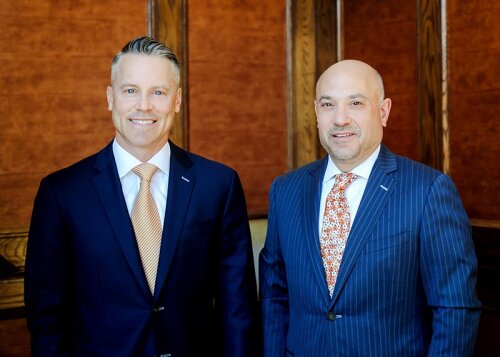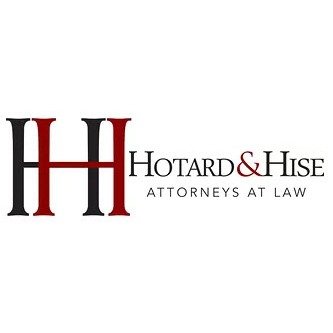Best White Collar Crime Lawyers in Georgia
Share your needs with us, get contacted by law firms.
Free. Takes 2 min.
Or refine your search by selecting a city:
List of the best lawyers in Georgia, United States
About White Collar Crime Law in Georgia, United States
White collar crime refers to non-violent crimes that are typically committed for financial gain or to obtain a business advantage. In Georgia, these offenses often involve acts such as fraud, embezzlement, insider trading, bribery, identity theft, forgery, and various types of financial schemes. While generally considered less violent than other types of crime, white collar offenses can have severe consequences for individuals and businesses, including significant financial losses, damaged reputations, and harsh legal penalties. Georgia state law takes white collar crime seriously, and those accused may face both state and federal prosecution, depending on the circumstances.
Why You May Need a Lawyer
If you are involved in any investigation or accusation of white collar crime in Georgia, it is crucial to seek legal assistance as early as possible. Common situations where people require legal help include being questioned by law enforcement, receiving a subpoena or target letter, facing arrest or criminal charges, or dealing with asset seizures. These cases typically involve complex financial records and legal regulations, making professional legal guidance essential for protecting your rights and developing a strong defense strategy. Even businesspeople and employees who believe they unintentionally violated regulations can face serious charges. A lawyer can help you navigate the investigation process, avoid self-incrimination, and represent your interests in negotiations or court.
Local Laws Overview
Georgia's approach to white collar crime is governed by both state statutes and federal laws. Some of the key aspects include:
- Fraud: Georgia law covers numerous types of fraud, including insurance fraud, credit card fraud, mortgage fraud, and securities fraud. Under the Official Code of Georgia Annotated (OCGA), fraud offenses can be charged as misdemeanors or felonies depending on the amount involved.
- Embezzlement and Theft: Under Georgia law, embezzlement is prosecuted as theft and carries serious penalties, which become more severe if larger sums are involved.
- Forgery: Creating or altering documents with an intent to defraud falls under Georgia's forgery statutes, and penalties range from probation to substantial prison terms.
- Bribery and Corruption: State statutes prohibit offering or accepting bribes, especially in public offices, and violations can lead to felony charges.
- Identity Theft: Using another person's information without their consent for financial gain is a serious crime in Georgia, with enhanced penalties for repeat offenders.
Many white collar offenses in Georgia are felony charges, leading to potential jail time, restitution, fines, and forfeiture of assets. In some cases, federal authorities may become involved, particularly if the case crosses state lines or involves federal regulations.
Frequently Asked Questions
What is considered a white collar crime in Georgia?
White collar crimes are generally non-violent offenses involving deceit or breach of trust for financial gain. Common examples include fraud, embezzlement, bribery, forgery, identity theft, and money laundering.
Are white collar crimes always prosecuted as felonies?
Not all white collar crimes are felonies in Georgia. The classification depends on the type of offense and the amount involved. Some minor frauds may be charged as misdemeanors, but most are felonies, especially when large sums are at stake.
Can I be charged at both the state and federal level?
Yes, certain white collar crimes violate both state and federal laws. If the crime involves interstate commerce or federal agencies, you may face charges from both Georgia and the federal government.
What should I do if I am contacted by law enforcement about a white collar crime?
You should avoid answering questions without legal representation. Politely request to speak with a lawyer before making any statements, as anything you say can be used against you.
How severe are the penalties for white collar crime in Georgia?
Penalties vary widely but can include prison time, fines, restitution, probation, community service, and asset forfeiture. Some offenses carry mandatory minimum sentences.
Can my assets be seized if I am accused of white collar crime?
Yes, under Georgia's forfeiture laws, authorities can seize assets believed to be connected to criminal activity, even before a conviction. A lawyer can help you challenge such actions.
Is intent required for a white collar crime conviction?
Most white collar crimes require proof of intent, meaning prosecutors must show that you knowingly engaged in deceptive or fraudulent activity.
What defenses are available against white collar crime charges?
Common defenses include lack of intent, insufficient evidence, mistaken identity, or proving that the actions did not constitute a crime under Georgia law. Each case is unique and requires tailored legal advice.
How long does a white collar crime case typically take?
Cases can be lengthy, often taking months or even years to resolve due to the complexity of financial records and legal procedures. Early legal intervention is critical.
Can a white collar crime conviction be expunged from my record in Georgia?
Georgia law is strict regarding record expungement, particularly for felony convictions. Some records may be restricted under certain conditions, but most convictions remain on your criminal record.
Additional Resources
Several organizations and agencies provide information and assistance related to white collar crime in Georgia:
- Georgia Bureau of Investigation (GBI) - Investigates major frauds, cybercrimes, and corruption within the state.
- Georgia Department of Law (Attorney General's Office) - Addresses consumer fraud, identity theft, and public corruption.
- State Bar of Georgia - Offers lawyer referral services for those seeking legal assistance.
- Georgia Secretary of State - Provides guidance on business regulations and compliance to prevent regulatory violations.
- Local police departments and prosecuting attorneys in your jurisdiction.
Next Steps
If you are facing accusations or charges related to white collar crime in Georgia, it is important to act promptly. Consider taking the following steps:
- Do not communicate with investigators or sign any documents without consulting a lawyer.
- Collect and preserve any relevant documents or electronic records that may pertain to your case.
- Seek a qualified attorney who specializes in white collar criminal defense. A legal professional can assess your situation, explain your rights, and guide you through the legal process.
- Stay organized and follow all legal advice provided by your attorney.
- Stay informed about court dates, deadlines, and required appearances to avoid missing important proceedings.
Being proactive and well-informed can help you protect your rights and achieve the best possible outcome if you are involved in a white collar crime matter in Georgia.
Lawzana helps you find the best lawyers and law firms in Georgia through a curated and pre-screened list of qualified legal professionals. Our platform offers rankings and detailed profiles of attorneys and law firms, allowing you to compare based on practice areas, including White Collar Crime, experience, and client feedback.
Each profile includes a description of the firm's areas of practice, client reviews, team members and partners, year of establishment, spoken languages, office locations, contact information, social media presence, and any published articles or resources. Most firms on our platform speak English and are experienced in both local and international legal matters.
Get a quote from top-rated law firms in Georgia, United States — quickly, securely, and without unnecessary hassle.
Disclaimer:
The information provided on this page is for general informational purposes only and does not constitute legal advice. While we strive to ensure the accuracy and relevance of the content, legal information may change over time, and interpretations of the law can vary. You should always consult with a qualified legal professional for advice specific to your situation.
We disclaim all liability for actions taken or not taken based on the content of this page. If you believe any information is incorrect or outdated, please contact us, and we will review and update it where appropriate.
Browse white collar crime law firms by city in Georgia
Refine your search by selecting a city.














